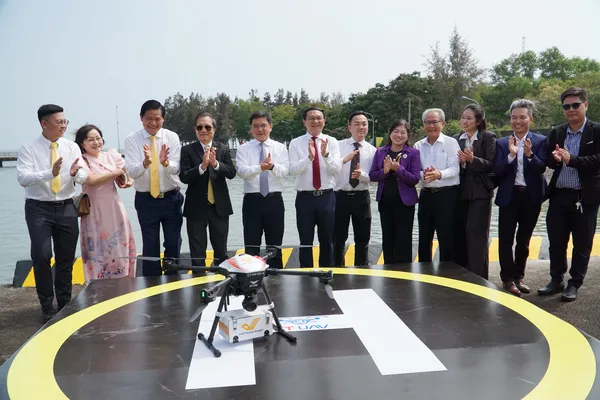 Economy
Economy

Automobile companies on the stock market had prosperous earning results in the first half of this year compared to the same period last year despite the impacts of COVID-19 pandemic.

|
| Although second-quarter profit decreased by 26 per cent year-on-year, Hàng Xanh Motors Service Joint Stock Company (Haxaco) still reported a rise in six-month profit of VNĐ61.5 billion, 5.4 times higher than the same period last year. — Photo haxaco |
HÀ NỘI — Automobile trading companies listed on the stock market reported positive earnings results in the first half of this year compared to the same period last year despite the impacts of COVID-19 pandemic.
The Saigon General Service Corporation (SVC), earned VNĐ141 billion (US$6.3 milllion) in after-tax profit in the first half of this year, six times higher than the first half of 2020.
SAVICO said that the auto market had recovered since the fourth quarter of 2020 and that demand had increased while the supply was limited. The whole market's automobile output in the second quarter of 2021 increased by more than 20 per cent compared to the same period in 2020.
Automobile trading companies took full advantage of the market opportunities making good gross profits, SAVICO said, adding that they also continued to maintain sales promotion programmes, and adapt cost-saving controls.
Despite the impact of the COVID-19 pandemic, SAVICO is targeting 2021 revenue of VNĐ17.2 trillion, up 7 per cent over the same period last year. They expect profit before tax of VNĐ287 billion, up 11 per cent year-on-year.
Although second-quarter profit decreased by 26 per cent year-on-year, Hàng Xanh Motors Service Joint Stock Company (Haxaco) still reported a rise in six-month profit of VNĐ61.5 billion, 5.4 times higher than the same period last year.
City Auto Corporation (CTF), a unit specialising in distributing Ford luxury cars, reported Q2 after-tax profit of more than VNĐ8 billion, 16 times higher than the same period last year. In the first 6 months of 2021, profit reached nearly VNĐ14 billion, 7.8 times higher than the same period last year.
CTF is aiming to earn revenue of VNĐ7.38 trillion, up 130 per cent and profit after tax of VNĐ80 billion, up 5.6 per cent. Although six-month business results increased sharply compared to the same period last year, CTF only achieved 13 per cent of its revenue target and 17.5 per cent of the year's profit plan.
The Việt Nam Automobile Manufacturers Association (VAMA) announced that sales of its member units in June 2021 reached nearly 23,600 vehicles of all types, down 8 per cent compared to the previous year. However, in the first 6 months of 2021, total vehicle sales reached 150,500, up 40 per cent over the same period last year.
According to experts, Vietnamese auto sales dropped 15 per cent in May and June partly due to the impact of the COVID-19 pandemic resurging in many localities around the country.
Chip shortage
A semiconductor chip shortage has caused a global crisis for major automobile producers, forcing them to suspend production and extend the time it takes to deliver their products.
For Vietnamese manufacturers, however, the impacts are relatively minor as they can still ensure normal production and business activities, according to insiders.
Daiki Mihara, General Director of Honda Vietnam, told the Việt Nam News Agency that the scarcity of the component currently had no impact on the company's production or assembly operations and that it would try to minimise the impact, continue to monitor the situation, and protect the interests of its customers.
A representative of Toyota Vietnam also said the impact of the shortage is insignificant as orders are accepted and delivery is made on time.
General Director of Suzuki Vietnam Co Ltd Toshiyuki Takahara said domestic models were affected by the shortage, but the company is trying to meet demand by ensuring the sources of raw materials for future supply.
Meanwhile, a Honda official said this is a global issue and Honda Vietnam will deal with it with appropriate countermeasures.
Phạm Nhật Vượng, Chairman of the newcomer Vinfast, said Vingroup planned to sell about 56,000 electric cars next year but the shortage had forced it to lower the number to 15,000.
According to experts in the automotive industry, each car has on average about 1,400 chips in hundreds of semiconductor parts and the number can amount to 3,000 in high-tech vehicles such as electric or hybrid cars. Meanwhile, there are now almost no domestic enterprises capable of making a fully functional semiconductor chip.
The heavy reliance on overseas spare parts manufacturers, the disruption of the supply chain due to the COVID-19 pandemic, the US-China trade war have all contributed to the shortage, they said.
In Việt Nam, the size of the auto market is only one-third of Thailand's and a quarter of Indonesia's, and as a result, the impact is not as visible as in other countries.
According to experts, the shortage of spare parts, especially semiconductor chips, could last until the end of this year or even into the first half of 2022. The activities of car manufacturers in the future will certainly feel the impact. Moreover, this shortage will make it difficult for the auto industry worldwide. — VNS




